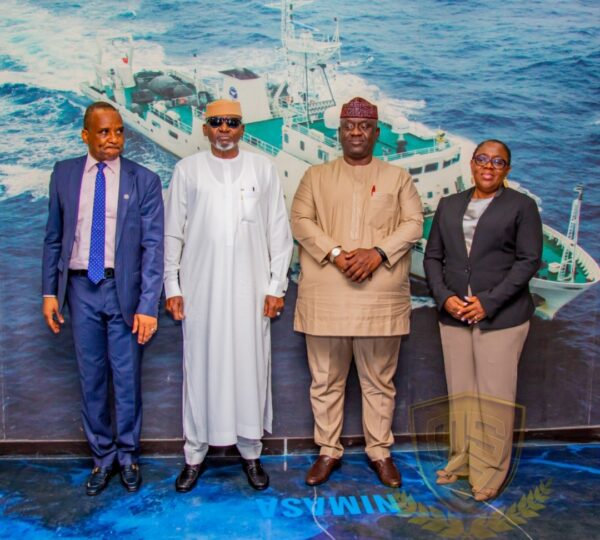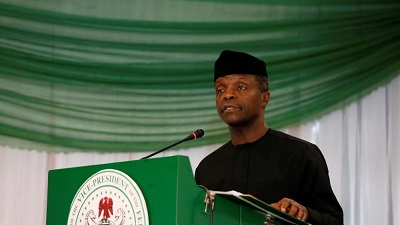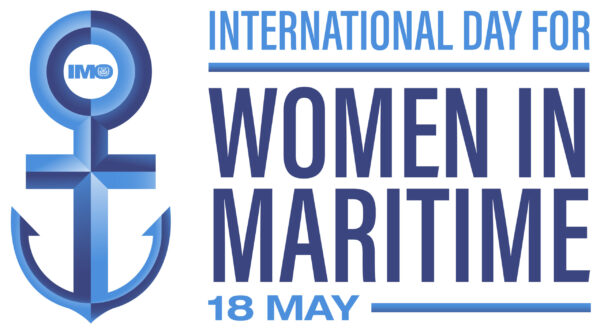$350million Cabotage Fund: 11 Firms Shortlisted To Benefit

· No record of eleven banks anywhere
· NISA, SOAN call for criteria, transparency
As the Federal Government plans the inauguration of a special committee this week in preparation for the disbursement of the long-awaited $350m Cabotage Vessel Finance Fund(CVFF) with a claim of having shortlisted 11 banks in readiness, inside sources in the relevant departments in the Nigerian Maritime Administration and Safety Agency(NIMASA) and the Federal Ministry of Transportation(FMoT) have said they are yet to be apprised of any bank list.
Meanwhile, NIMASA had since shortlisted eleven indigenous shipping firms as prospective beneficiaries with four commercial banks to administer the fund.
MMS Plus gathered at the weekend that it is either the eleven banks are yet to be listed or that the Special Committee on inauguration will be saddled with the brief of short listing the financial institutions with criteria while setting other conditions for the fund’s disbursement.
The Coastal and Inland Shipping(Cabotage) Act of 2003 empowers the Minister of Transportation to prescribe guidelines and criteria on how the funds shall be disbursed, while emphasizing in article 45 under Part VIII that,’The beneficiaries of the fund shall be Nigerian citizens and shipping companies wholly owned by Nigerians”.
However, while NIMASA sources said,” We don’t have the banks”, FMoT noted,”We are not aware”. However, the Finance Ministry and Central Bank of Nigeria(CBN) said nothing.
So far, three banks contacted at the weekend: Zenith Bank; United Bank for Africa(UBA) and Access Bank, saw that as a huge opportunity but said they were not aware.
Meanwhile, the news of disbursing the funds raised mixed feelings. While some were excited, others still cast doubts on the intentions and promises especially when it has become a recurring trend since 2006.
What constituted concern again for stakeholders among who are the Nigerian Shipowners’ Association(NISA) and Ship Owners Association of Nigeria(SOAN) are the criteria for disbursement, conditions, who the beneficiaries are and how the banks were selected as well as at what interest cap will the funds be given and the repayment terms.
They called on Federal Government to ensure that the procedure for the disbursement of the $350million CVFF to indigenous ship owners is transparent and all encompassing.
For NISA, “We view this as important and game changing statement, which will definitely bring succor to ship owners in Nigeria. We hope the modalities and the criteria for the selection and the guidelines to be deployed for the disbursement will be transparent and all encompassing”.
The CVFF is a special intervention fund created with the Cabotage Act to assist indigenous ship owners with the acquisition of vessels to enable them operate maximally in the nation’s cabotage trade. The fund is envisioned to aid local ship owners compete favourably against foreign ship owners in crude freighting on Nigerian waters. However, efforts to get the government to disburse this fund domiciled in CBN now in breach of the Act has not yielded any result despite the alarming tumble in the number of indigenous players in the shipping industry.
The Act clearly stated in article 44, thus:”The fund shall be collected by NIMASA(formally, National Maritime Authority) and deposited in commercial banks and administered under guideline that shall be proposed by the Minister and approved by the National Assembly”.
But the Treasury Single Account(TSA) of the government tweaked the legislation, thereby raising a supremacy struggle between a legislation and a policy statement.
As at June 2021, the Director General of NIMASA,Dr. Bashir Jamoh said eleven firms were shortlisted by NIMASA as beneficiaries with four banks for disbursement.
“The CVFF account is not under NIMASA’s control, in the sense that it cannot use the money, it must go through a process and that is why we have not been able to disburse the fund.
“With the way Cabotage Act of 2003 is designed, disbursement from primary lending institutions as stated in the Act cannot happen now, because the operations of TSA in all government agencies accounts now comes from TSA,” Jamoh noted
But on Thursday, last week, the Federal Government again, disclosed that disbursement of the cabotage funds would commence with the inauguration of the special committee next week by the Minister of Finance, Budget and National Planning, as 11 banks had been shortlisted for the purpose.
Jamoh, disclosed this at the 53 sessions of the Presidential Media chat organized by the President Media team, in Abuja.
The fund is sourced from a 2 per cent contributions by indigenous ship owners from every contract executed in the nation’s waters.
The disbursement of the CVFF is backed by the provisions of Section 42(1)-(2) of the Cabotage Act 2003, enacted to promote the development of indigenous ship acquisition capacity by providing financial assistance to Nigerian operators in domestic coastal shipping.
Jamoh while lamenting the absence of indigenous fleets, stated that the disbursement of the funds will not only enhance local shipping business but also assist in creating jobs for the over 2041 Nigerian Seafarers trained by the Agency.
He disclosed that NIMASA has trained about 2041 Seafarers in various institutions overseas, out of which over 800 have gained jobs with shipping companies, globally
“We are unable to retain them here, due to the absence of fleets to provide jobs for them in Nigeria, after their training overseas
“One vessel can employ up to 40 of them. The shipping business is capital intensive, thus government need to give helping hands to potential ship owners. We need them to feed into our own system if the fleets are available.” He said
The Director General while speaking on the payment of “ War Risk Insurance” imposed on shipments of goods into Nigeria, stated that NIMASA is working to exit Nigeria from such charges, following safety records at the Gulf of Guinea Jamoh stated that efforts are on to ensure that shipments of goods and services to Nigeria from Europe no longer attract “ War risks insurance”
He disclosed that Payment of war risks insurance has been going on for 25 years following insecurity in the Gulf of Guinea, but noted that with the recent safety records in the region, ships coming into Nigeria waters don’t need to pay such risks
“There are three basic insurance charges p, including “ War risk insurance, insurance on the valuables in the ship and personnel insurance for workers in the ship.
These are the three key elements which we ought not to be paying, as they are responsible for a 90% increase in the prices of goods and services imported into Nigeria.
“They have commended NIMASA for the security recorded in the Gulf of Guinea and we are waiting for the report from the Lloyds of London very soon, we hope to exit this insurance
Speaking on NIMASA’s achievements, he disclosed that the agency remitted N30b into the federation account in the first half of 2022,
He disclosed security in the Gulf of Guinea had been largely aided by the deep blue project, adding that “the Gulf of Guinea has recorded zero attacks since the last quarter of 2021 to date
“We have not experienced any attacks in Nigeria since the last quarter of 2021 to date which was why they have removed us from the piracy list,” Jamoh added.








